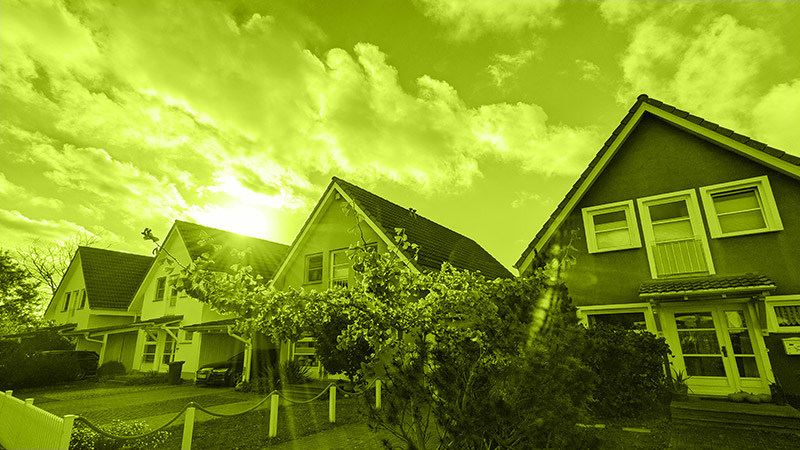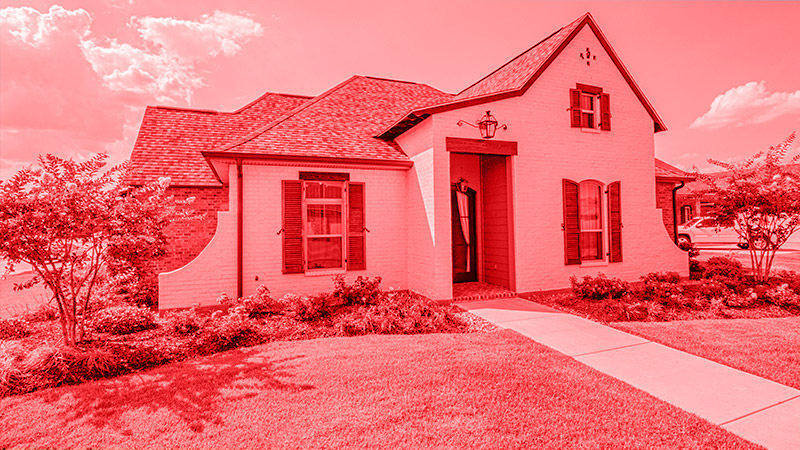
Can you get a mortgage with a CCJ? If you have blemishes on your credit record, you may be worried that you are ineligible for a mortgage.
You may be reluctant to approach lenders or apply for mortgages in case you are refused and your credit rating is further affected.
The truth is, that ‘black marks’ on your credit history do not automatically rule you out of getting a mortgage.
There are a number of niche lenders that specialise in providing mortgages to those with defaults or CCJs.
These lenders will consider the severity, the duration, and how historical the credit issues are, then determine how closely you meet their other eligibility requirements.
In this article, we will explain the best way to secure a mortgage if you have CCJs or defaults on your credit file.
Getting a Mortgage with CCJs
As a result of having bad credit, many people are refused a mortgage.
However, a mortgage broker can help you find lenders who are more likely than traditional lenders to accept your application.
It will take time to assess your particular circumstances and lenders may have additional criteria, in this guide, we will cover some of the major points to help you understand how it is still quite possible to secure a mortgage with a CCJ.
What is a CCJ?
A CCJ, otherwise known as a County Court Judgement, is issued if you fail to pay a debt that you owe.
Having one of more CCJs on your credit file may affect your mortgage choices, but it certainly doesn’t rule out lending altogether -you may need to look for a bad credit mortgage lender.
Whilst, many mainstream lenders will refuse to offer a mortgage to those with an open CCJ or ones that have been issued in the past 3 years, there are lenders that will take them into consideration.
Although it may be more difficult and more complicated than securing a mainstream mortgage, it is possible to secure a mortgage with CCJs through a speciality lender.
In these cases, your mortgage application is likely to be declined by many lenders, but it is still possible to secure a mortgage with a poor credit rating.
Can I get a mortgage with CCJs?
There a number of factors regarding your CCJ(s) that mortgage lenders will take into account, including:
- The Date of the CCJ – The most important factor is when the CCJ was registered. The longer the date that the CCJ was issued, the better the chances of securing a mortgage. The date the CCJ has been resolved is also important, with many lenders requiring CCJs to be settled for 12 months or more before agreeing to a mortgage. However, there may be a few lenders that don’t require CCJs to be resolved at all.
- Number of CCJs – A specialist bad credit mortgage lender will typically limit the number of CCJs registered in the last two years to 2, with minimal restrictions for those registered longer than 24 months ago. The larger the deposit you have, the more CCJs your lender is likely to accept, as long as they were issued over 12 months ago.
- Amount of CCJ – The amount of the CCJ is important as it often determines the amount of deposit you will need to put down. If your CCJ was issued over 2 or 3 years ago, the amount of the CCJ will have little effect on your mortgage, however, if it is less than 2 years old, size does matter. For example, a CCJ over 12 months old that is £2,500, would probably require a 15% deposit. If the CCJ is less than 12 months old, it is limited to £1,000. Generally speaking, the larger the deposit you have, the larger the amount of CCJ your lender will accept. For a large CCJ, expect to require a deposit of between 25 and 35%.
- Satisfied or Unsatisfied CCJ – Speciality lenders will vary on whether they accept lenders with unsatisfied or satisfied CCJs, but you will have access to a larger choice of lenders if your CCJ is resolved. If your CCJ is unsatisfied, some lenders may require you to pay it off before applying for a mortgage, while others will allow you to apply as long as the CCJ is over 2 years old. Lenders that accept satisfied CCJs may require it to be paid off for over 12 months before accepting your application.
Getting a Mortgage with a CCJ is not the only thing your lender will consider.
They will also have eligibility requirements that you will need to meet to improve your chances of successfully applying for a mortgage.
They are:
- Deposit – The bigger the deposit you have, the better. If you only have 5% to put down, then your CCJs will need to be older than 3 years at least. If you have a 25% or more as a deposit, then you could still be eligible for a mortgage with CCJ issued in the last 12 months. In fact, most lenders will require a large deposit for bad credit mortgages.
- Mortgage Type – Standard mortgages (fixed rate, variable, tracker, etc.) and remortgages will have the most flexible eligibility criteria when it comes to CCJs. Things may get a little more complicated for first-time buyers, with some providers only accepting lenders with CCJs under £1,000. Buy to Let mortgages may be a little more difficult, often having further restrictions put in place. You may be required to put up a larger deposit or meet a minimum age requirement.
- Affordability – More recent CCJs may restrict your lending. Your employment may also be a factor. For example, lenders may impose further restrictions if are self-employed with less than two years of accounts.
- Additional Credit Issues – Other credit problems on your file may also affect your likelihood of being accepted for a mortgage. Issues such as late payments are considered less serious and tend to be acceptable in the previous 2 years, as long as they don’t stretch to more than 3 months late. More severe credit problems, such as bankruptcy, repossessions, IVA, or being in a debt management plan, along with CCJs, may make is much more difficult to find a willing mortgage provider. Missed mortgage payments are more serious.
Read our full guide on applying for a mortgage after an IVA.
Can I get a mortgage with a satisfied CCJ?
Fortunately getting a mortgage with a CCJ or defaults is possible and your options will be more abundant if you have a satisfied CCJ.
If you have an unsatisfied CCJ, many lenders require you to pay it off before applying for a new mortgage, yet there are still lenders available who do offer mortgages to those with unsatisfied CCJs and defaults.
When do CCJs Expire?
County Court Judgments (CCJs) stay on the Register of Judgements, Orders and Fines for 6 years in total. They also stay for the same amount of time on your credit report/file.
Thankfully, a CCJ will not stay on your file permanently and will be removed at the end of the 6 year period.
Even better, you do not need to wait to apply for a remortgage and you may have the opportunity to secure one, even with a CCJ against you.
And remember, if you pay your debt off in full within one month of the judgement being issue you won’t have the CCJ recorded.
In these cases, you will be recorded as “satisfied” in the register, allowing potential lenders to see you cleared your debts.
Looking for a commercial mortgage with bad credit? You may be interested in the possibility of shared ownership.
How Do I Know if I have a CCJ?
Have you ever been refused a loan or credit in the past?
There are many potential reasons for this, one of them being if you have had a CCJ placed against your name.
You can check if you have A CCJ by accessing the Register of Judgements, Orders and Fines.
There is a small fee to do this, so the alternative and often free method is to ask the credit reference agency.
Often people ask the question “how do I know if I have a CCJ?” and this can be a result of various different reasons.
For example, a debt that you felt wasn’t communicated effectively to you or maybe even misplaced paperwork, that means you were not aware.
It’s common for the courts to mail you the details of a CCJ against you, but if you are still unsure, you can always access the Register of Judgements, Orders and Fines to find out and put your mind at rest.
Can I Get a Mortgage with a CCJ?
Regardless of your credit score and whether it has a CCJ recorded, getting a mortgage with a CJJ is just like any other applicants and an affordability assessment will be completed on you.
This is to determine the mortgage rate amount and the interest rate you will be offered.
If you have a CCJ on your credit report, this might result in you being assessed in a different way.
Typically, those with a CCJ will not be able to borrow as much as those with a clean credit file and the associated costs will be higher e.g. interest and admin fees. This is even more applicable to those with unpaid or recent CCJs.
It is not all bad news though. You could still get a great mortgage deal with or without a CCJ. Mortgageable can help find you and compare mortgages for CCJs and defaults with our network of lenders.
Thankfully, there are still mortgage lenders that accept CCJs.
Note: Are you looking for commercial property but have a bad credit history? Bad credit commercial mortgages may be an option for you.
Getting a Mortgage with Defaults
You can still get a mortgage with defaults on your credit file.
A specialist lender may be able to find you a deal that fits your circumstances, as long as you match their criteria in other areas, such as income, affordability, and other credit issues.
Types of Mortgage Defaults on Credit File
Late Payments, Missed Payments, and Defaults
A late payment is when a bill is paid after the due date; a missed payment is when the bill is not paid; a default is marked on your credit file when there have been several missed payments.
You are usually issued with written notice of default and given a deadline to respond.
The creditor can then close your account and request payment in full, with the default staying on your credit file for six years.
You should be aware that late payments will also appear on your credit history for up to 6 years, but are marked differently (with a number next to it representing how many months late it is), and are often ignored by lenders if they occurred more than 2 years ago.
Missed payments also appear on your credit history, and along with defaults, they are considered the more serious credit issues.
Lenders will consider how long it took to repay the debt or how much is owed.
The more historical the missed or default payments, the better your chances of getting a mortgage with a history of defaults.
Want a mortgage for a rental property? They work slightly differently to regular residential mortgages, learn all about them in our buy to let mortgages with bad credit.
Secured Loans and Unsecured Loans
In the world of defaults, there are two types of loan: secured loans and unsecured loans.
A secured loan is one that is linked to an asset, such as a house i.e. mortgage payments.
An unsecured loan includes the likes of utility and phone bills, and credit card payments, car loans not linked to an asset.
Missed payments and defaults to unsecured loans are considered to be much less serious than those on secured loans.
A few missed payments on unsecured loans over the last 6 years is unlikely to affect a mortgage application.
If you have more missed payments than that, you may be expected to put down a larger deposit or be offered a deal with a higher interest rate.
Defaults on Mortgage Payments
The most severe kind of missed payment in the eyes of lenders is a missed mortgage payment.
A single late payment made over 2 years ago may be acceptable to some lenders, but to secure a new mortgage, you really need to be up to date in your current one.
Even specialist poor credit lenders will find it difficult to lend to those in mortgage arrears.
Recent Missed Payments
The more recent the missed payment the worse it looks to lenders.
Defaults in the last 12 months will seriously affect your chances of getting a mortgage, particularly if you have a small deposit.
To increase your chances of securing a mortgage with a good rate, raise as much of a deposit as possible.
CCJ Mortage Options
If you are still unsure about your options or have a question we haven’t managed to answer in this guide, feel free to contact us today for a free, no-obligation discussion.
Call us today on 01925 906210 or email us. One of our advisors can talk through all of your options with you.











